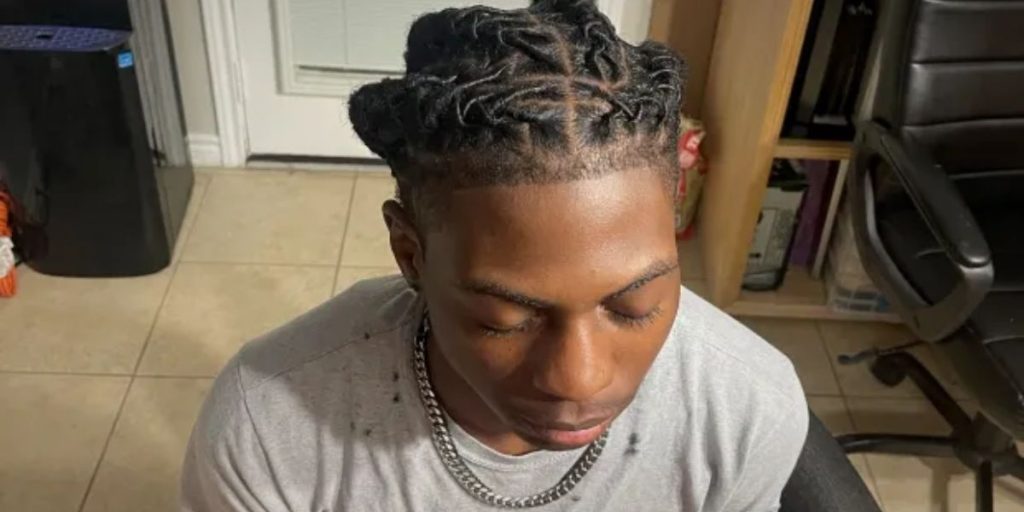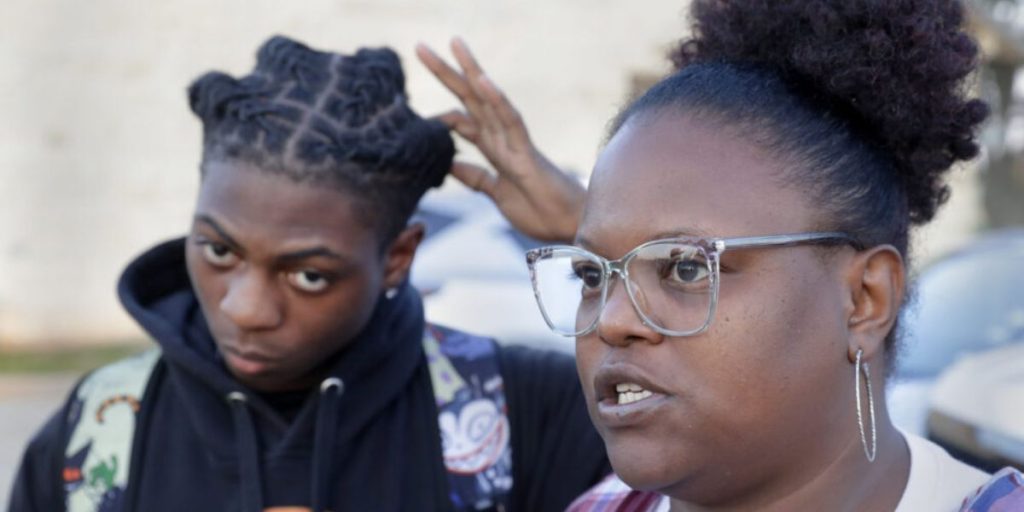A judge ruled Wednesday that a trial be held next month to determine whether a Black high school student in Texas may continue to be punished by his district for refusing to modify his hairdo, which he and his family claim is protected under a new state law.
Darryl George, 18, has not attended to his normal classroom at Barbers Hill High School in Mont Belvieu since August 31. Instead, he has either served an in-school suspension or participated in an off-site disciplinary program.

His Houston-area school district, Barbers Hill, has stated that George’s long hair, which he wears in neatly tied and twisted dreadlocks on top of his head, violates a district dress rule that limits males’ hair length. The district has stated that other pupils with locs comply with the length policy.
George, a junior, said Wednesday that he has been stressed and frustrated by what he considers to be unfair punishment, but that he is pleased to soon have his day in court.
“I’m delighted we’re being heard, too. “I’m glad things are moving and we’re getting through this,” George said after the hearing in Anahuac, standing by his mother, Darresha George.
State District Judge Chap Cain III in Anahuac has scheduled a Feb. 22 trial in a lawsuit brought by the school district over whether its dress code rules limiting the length of males’ hair violate the CROWN Act. The new Texas legislation, which went into effect in September, prohibits race-based hair discrimination and forbids employers and schools from punishing persons for their hair texture or protective hairstyles such as Afros, braids, dreadlocks, twists, or Bantu knots.
Darresha George expressed disappointment that the judge did not consider giving a temporary restraining order, which would have suspended her son’s punishment until next month’s trial.
“I have an 18-year-old son who wants to go to school and get an education, and you’re messing with him.” Why?” She said.
Darryl George claimed in an affidavit submitted last week to support the temporary restraining order that he is being exposed to “cruel treatment.”
“I love my hair, it is sacred, and it is my strength,” George wrote. “I just want to go to school and be a model student. I’m being harassed by school officials and treated like a dog.
A school district official did not talk with reporters following the hearing and did not immediately respond to an email requesting comment.

Barbers Hill Superintendent Greg Poole claimed in a paid ad published in the Houston Chronicle last month that the district is not in violation of the CROWN Act.
In the advertisement, Poole defended his district’s policy, claiming that districts with a conventional dress code are safer and have superior academic achievement, and that “being an American requires conformity.”
“We will not lose sight of our primary purpose — excellent standards for our students — by succumbing to political pressure or responding to misleading media reporting. Poole noted, “These entities have ‘lesser’ goals that ultimately harm children.”
The two Texas politicians who co-authored the state’s version of the CROWN Act, state Reps. Rhetta Bowers and Ron Reynolds attended Wednesday’s session and stated that the new state law protects Darryl George’s haircut.
The school district “is punishing Darryl George for one reason: his choice to wear his hair in a protective style which harms no one and causes no distraction in the classroom,” Bowers said in a statement.
George’s family has also filed a formal complaint with the Texas Education Agency and a federal civil rights lawsuit against Gov. Greg Abbott, Attorney General Ken Paxton, and the school district, saying that they failed to enforce the CROWN Act. The case is before a federal judge in Galveston, Texas.
Barbers Hill’s student hair regulation has already been challenged in a May 2020 federal lawsuit brought by two other students. Both students left the high school, but one returned after a federal judge issued a temporary injunction, stating that the student demonstrated “a substantial likelihood” that his rights to free speech and freedom from racial discrimination would be infringed if he was not permitted to return to campus. That litigation is still pending.